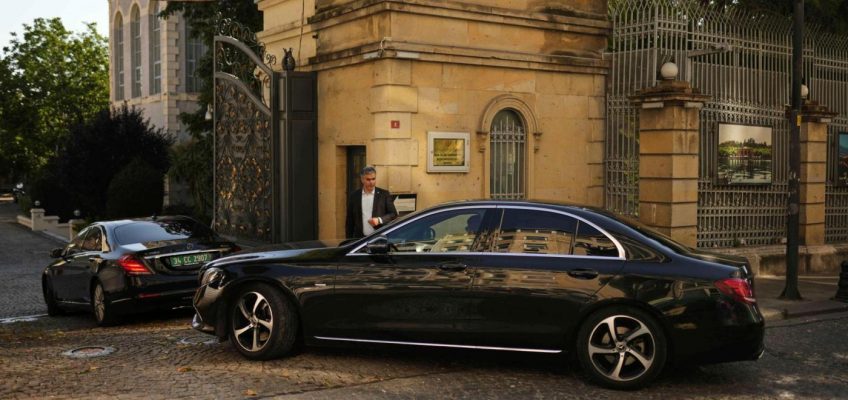By ANDREW WILKS and STEPHANIE LIECHTENSTEIN, Associated Press
ISTANBUL (AP) — Iranian and European diplomats met Friday in Istanbul in the latest drive to unpick the deadlock over Tehran’s nuclear program.
Representatives from Britain, France and Germany, known as the E3 nations, gathered at the Iranian consulate building for the first talks since Iran’s 12-day war with Israel in June, which involved U.S. bombers striking nuclear-related facilities.
The talks, which ended after four hours, centered on the possibility of reimposing sanctions on Iran that were lifted in 2015 in exchange for Iran accepting restrictions and monitoring of its nuclear program.
Journalists wait outside of the Iranian consulate, in Istanbul, Turkey, Friday, July 25, 2025, ahead of a meeting between European and Iranian diplomats for talks over Tehran’s nuclear program. (AP Photo/Francisco Seco)
The return of sanctions, known as a “snapback” mechanism, “remains on the table,” according to a European diplomat speaking on condition of anonymity due to the sensitivity of the talks.
“A possible delay in triggering snapback has been floated to the Iranians on the condition that there is credible diplomatic engagement by Iran, that they resume full cooperation with the IAEA (International Atomic Energy Agency), and that they address concerns about their highly-enriched uranium stockpile,” the diplomat said.
European leaders have said sanctions will resume by the end of August if there is no progress on containing Iran’s nuclear program.
Tehran, meanwhile, has said the U.S., which withdrew from the 2015 deal during President Donald Trump ’s first term, needs to rebuild faith in its role in negotiations.
Deputy Foreign Minister Kazem Gharibabadi said Iran’s engagement was dependent on “several key principles” that included “rebuilding Iran’s trust – as Iran has absolutely no trust in the United States.”
In a social media post Thursday, he also said the talks shouldn’t be used “as a platform for hidden agendas such as military action.” Gharibabadi insisted that Iran’s right to enrich uranium “in line with its legitimate needs” be respected and sanctions removed.
Iran has repeatedly threatened to leave the Nuclear Nonproliferation Treaty, which commits it to refrain from developing nuclear weapons, if sanctions return.
Gharibabadi described Friday’s talks as “serious, frank and detailed.” Posting on X, he said the two sides discussed lifting sanctions and the snapback mechanism while agreeing to further talks.
“Both sides came to the meeting with specific ideas,” he said. “It was agreed that consultations on this matter will continue.”
Friday’s talks were held at the deputy ministerial level, with Iran sending Gharibabadi and a fellow deputy foreign minister, Majid Takht-e Ravanchi. A similar meeting was held in Istanbul in May. The identity of the E3 representatives were not immediately clear but the European Union’s deputy foreign policy commissioner was thought to be attending.
The U.K., France and Germany were signatories to the 2015 deal, alongside the U.S., Russia and China. When the U.S. withdrew in 2018, Trump insisted the agreement wasn’t tough enough. Under the original deal, neither Russia nor China can veto reimposed sanctions.
Related Articles
Today in History: July 25, Tuskegee Syphilis Study exposed
What’s behind the clash between Thailand and Cambodia that left at least 11 dead
Ranchers in southern Mexico are struggling against a flesh-eating parasite infecting livestock
French President Macron says France will recognize Palestine as a state
With no access to education beyond the 6th grade, girls in Afghanistan turn to religious schools
Since the Israeli and U.S. strikes on Iran, which saw American B-52 bombers hit three nuclear sites, Iran’s Foreign Minister Abbas Araghchi has accused the E3 of hypocrisy, saying they failed to uphold their obligations while supporting Israel’s attacks.
Against the backdrop of the conflict, which saw Iran respond with missile attacks on Israel and a strike on a U.S. base in Qatar, the road ahead remains uncertain.
While European officials have said they want to avoid further conflict and are open to a negotiated solution, they have warned that time is running out.
Tehran maintains it is open to diplomacy, though it recently suspended cooperation with the IAEA.
A central concern for Western powers was highlighted when the IAEA reported in May that Iran’s stockpile of uranium enriched to 60% – just below weapons-grade level – had grown to over 882 pounds.
In an interview with Al Jazeera that aired Wednesday, Iranian President Masoud Pezeshkian said Iran is prepared for another war and reiterated that its nuclear program will continue within the framework of international law while adding the country had no intention of pursuing nuclear weapons.
A spokesman for Iran’s Atomic Energy Organization said Thursday the country’s nuclear industry would “grow back and thrive again” after the recent attacks by Israel and the U.S.
Liechtenstein reported from Vienna. Associated Press writers Nasser Karimi and Amir Vahdat in Tehran, Iran, contributed to this report.
The Associated Press receives support for nuclear security coverage from the Carnegie Corporation of New York and Outrider Foundation. The AP is solely responsible for all content.


Leave a Reply